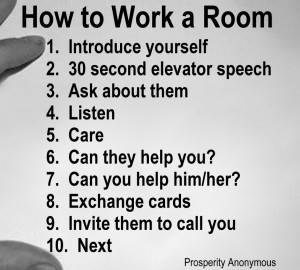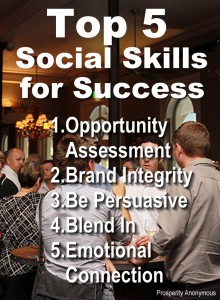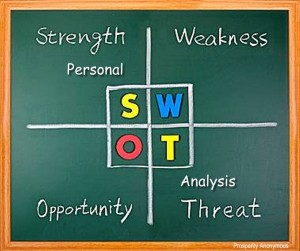The better you feel about yourself, the more you will have and be able to give to a troubled world. If you are not feeling good about who you are as a person, you are more likely to be tired, depressed, feeling as if you are all alone in this world, anxious or unhappy.
If you are not feeling good about who you are as a person, you are more likely to be tired, depressed, feeling as if you are all alone in this world, anxious or unhappy.
How you feel about the person you see when you look in the mirror affects the entire world that surrounds you; your relationships, your career, satisfaction, and overall quality of life.
Here are a dozen questions to ask that can put you on the path of becoming your highest and best enabling you to have more of yourself to share with a world that needs your positive impact.

1. What does my inner voice say about me?
Sometimes our own inner voice is our worst enemy; old recordings that play on in continuous loops touting self criticism or unworthiness.
You can interrupt the pattern with a strike-that-reverse-it strategy. There are many methods to approach this kind of negative self-talk but I have found that the most immediate and abrupt interruptions and reversal methods work best.
Snap It Out
For instance, wearing a rubber band on your wrist and snapping it immediately when you sense the negative thought. This creates a stopping point.
Next, you want to say (out-loud, if you can) the opposite, positive reinforcement or reframe of the negative thought three times (this can be silently to yourself if you’re in a public environment where this might be inappropriate).
You might also consider a simple tapping exercise that I encourage my clients to use that goes like this:
Tap It Out
Let’s say your negative thought was, “I’m stupid.” Immediately cock your middle finger with your thumb and flick your ear (just like you might do to your little brother, or maybe you grandmother did that to you to interrupt your pattern of behavior, while remembering that this is not punishment, only a strong signal to stop the thought in its tracks).
You don’t have to flick your ear but I do suggest that you flick yourself somewhere around the vicinity of your head because this recognizes and identifies the location where the transgression originated. With a little practice you can develop a flicking method that couldn’t even be discerned by the unsuspecting public around you.
Then with the same finger that you flicked yourself with, tap the inside center of the palm of your opposite hand repeatedly. While you tap continuously say the negative thought (out-loud, if you can) three times with as much negative emotion associated with the words that you can muster. While you are doing this, imagine seeing the thought travel from your brain to inside the palm of your hand while you are saying the words. Then close your hand tightly, as if you are gripping the thought so as not to release it.
Next, turn over your clenched fist and tap repeatedly at a rapid pace, just like you did before, only this time repeat the opposite supportive positive phrase (out-loud if you can) that counteracts the negative thought. In this case if might be something, like, “I am getting so much smarter and brilliant every day. I’m a genius!” After the third recitation seal the deal by an affirmative closing statement, like, “I love the new me!”
Then, open your hand and let the negative thought fall down to the ground like a rock. Brush the insides of your hands in a cleansing motion and go on about your day a little better than you were before.
Amazingly, the next time that negative thought interrupts your daily life (if at all), you will find that you have less emotional attachment to it. This is an effective method that breaks the pattern and also removes the psychological pain associated with these negative invasions.
This works for my clients – and it will work for you – if you give it a chance.
Some other questions you might ask could be:
2. How positive is my personal outlook?
We all have heard about how we are supposed to maintain a positive mental attitude ad infinitum. But it can sometimes be a challenge top think positively when you’re not feeling so good about yourself or life in general.
It’s not enough that we are bombarded by life circumstances that may be less than desirable but we are commonly exposed to negative influences that are quite easily monitored and filtered by simply paying attention and taking action to protect your personal space.
Find ways to focus on the positive. Start looking for the silver lining in everything in your life and avoid or eliminate anything that does not resonate with your happiness.
3. Do I open myself to destructive programming?
The phrase Garbage In Garbage Out (GIGO) originally used amongst computer programmers to refer to erroneous programming code or input producing unrecognizable output. We are not that much different; what we allow as input to our central processing unit (CPU) may produce a perception, belief or feeling based on data that may not be in our best interest.
If you want to take control about how you feel about yourself, it is imperative that you take action to control what information your mind has access to and/or how much attention you will give to certain kinds of data.
I routinely get exposed to data that is extremely interesting to my scientific mind. Then I have to ask myself, “Am I willing to dedicate a great deal of my life’s work and energy to this topic?” One must manage economy of time, effort and concentration. Learn how to say, “No,” to some projects that would be better served by someone else’s expertise. Learning to tune out unnecessary input can help reduce the white noise in your thoughts.
You might consider monitoring, filtering or eliminating other input representing vibrational incongruencies, like media, TV, news, magazines, tabloids, etc… Intentionally seek out more sources of positive input from cognitively selected books, web sites, recordings, videos that are more in line with what you want.
4. What is the quality of my relationships?
You can immediately affect the quality of your self-worth by hanging out with a higher quality of friends and associates. Simply stated, ditch the nay-sayers, nervous perfectionists and compulsive conspiracy theorists and begin to surround yourself with more supportive and positive people.
Some people have a toxic affect on your life. You can tell by the way that you feel after you’ve spent time with them. Ask yourself, “Do I feel better when I’m around them?” Or do they make you feel drained? If they do not make you feel better, then they are not the kind of people that are in your best interest. If they drain you or are toxic, you need to stop spending time with those people.
Start making more time for the people that make you feel better about yourself. This raises the vibration of your personal power bubble.
5. How much gratitude do I exude?
The more thankful that you are for all the things that bring you joy or that you appreciate in your life also raises your self-esteem. To keep from taking things for granted every day, consider taking a daily 2 Minute Gratitude Break.
It’s a good way to take out a couple of minutes to reflect on the day’s events and activities. In a seated upright position with your feet flat on the floor, arms relaxed on your legs with hands palm up, take a deep breath in through your nose and let it out through your mouth, repeat as you relax… Concentrate on three things that you are grateful about yourself today (they don’t have to be big things).
Consider getting a small notebook to record the three things that you are grateful for each day. Review the list by reading it back to yourself out loud and smile. You may be surprised that as you look for the things that you are thankful for, you will find more good things happening in your life as you look for them. m down, then read them out loud.
6. At what level do I maintain strength and honor?
When you do the right thing, keep your word and stay true to what you believe in, you bolster your self-esteem. This makes you even stronger as you feel better about yourself and more confident about whom you are as a human being.
Mean what you say, say what you mean, let your word be your bond. Make your handshake and the words you express be integrous and trustworthy.
If you are in a leadership or influential position, don’t tell others what to do (especially if it sounds like judging others or preaching). Instead lead by example. Let others see your good works and allow them to emulate your performance.
Become predictably dependable, giving others confidence in your ability to do what you say you will do.
7. Am I a perfectionist?
For the perfectionist, you need to lighten up and learn to let go of your rigid perfectionism.
Consider cutting yourself some slack and you’ll be surprised at how much more you accomplish in your life which will also make you feel better and better.
It is better to get a thing done, than to do nothing from fear of not being able to complete it perfectly (or procrastination).
Perfectionists have a tendency to lean towards private self-abuse, condemning themselves for falling short (refer back to #1).
Embrace adequacy when doing a project. For instance, if you need to write a report, give yourself a deadline; a date and a time. When the time is up; you’re done. Move one and let it go. You could write and re-write for days… Sure, you could re-edit it at another time, but if you do; create a new deadline and stick to it.
I’m not saying to settle for mediocrity or to compromise your integrity, just to cut yourself some slack… for you. You are amazing and you deserve it. And you might be surprised at how much people appreciate your new level of increased performance.
Perfectionists also tend to expect more from their peers, which tends to be a constant cause of frustration. Learn to be more tolerant and let others do the best they can with the tools that they have (not everyone can be as wonderful as you; and that’s okay). Learn to let others be.
I know, it seems impossible… but it gets easier.
8. What if I Blow it?
You have to stop the self-deprecation. You are no longer allowed to put yourself down for shortcomings.
From now on, you must learn to forgive yourself and learn to let things go (see #1). Some people ride themselves so hard that they get physically sick.
If you blow it, remember that you are a good person and you’re getting better every day.
Then take a look at the facts; what made you do what you did? This is an important step, because we all make mistakes, but if we examine the evidence and identify where we broke weak, we are more likely to prevent stumbling again. (At least in this way, because let’s face it, we all misstep sometimes. Nobody’s perfect.)
Congratulate yourself for figuring it out and make yourself a promise to look out more for yourself in the future. You have just completed another course in what not to do next time.
Always look for the silver lining, use positive reinforcement, forgive yourself, give yourself a big hug and tell your inner self, “I love you. You are awesome.” Because you are.
9. How Do I Treat Others?
Helping others makes you feel better about yourself. Be kind and generous. Commit to random acts of kindness. Volunteer your talent or time to an honorable cause. It feels good to help others who are less fortunate than you.
There’s nothing better than The Golden Rule, “Do unto others as you would have them do unto you.” No matter what you station in life (even if you feel like you’re at the bottom), there’s always somebody worse off than you.
I know that I help people every day, and some days… when I feel like I have nothing to give (yes, even I have my down days), but when I force myself to go through the motions on the behalf of someone else; it helps me to resonate with my strength and I get re-charged when my life affects someone else’s in a positive manner.
Just a simple compliment can make someone’s day, makes you feel better, and others feel better about you, too.
10. When’s the last time I tried something new?
Doing something you’ve never done before (especially something you may have avoided because the thought of it made you uncomfortable) builds self-esteem.
It can be something that you’ve always wanted to do, or maybe something that may not have even occurred to you.
As you look for opportunities to experience something new, they will appear before you… and engaging in these activities – even it if turns out that you don’t like them – gives you self-confidence and assurance in yourself.
It is better to say, “No thanks. I tried it and didn’t like it,” than to shy away, just because you’ve never done it before. (Note: this does not apply to illegal activities, which would be contrary to your strength and honor. See #6.)
11. Do I Compare Myself to Others?
Most of the clients I attract are upwardly mobile, focused and committed to high levels of personal excellence and they do tend to struggle with comparing themselves to others. Simply stated, comparing yourself to others drains your personal power.
So what, if someone’s better at something than you are? Guess what? You’re better at something than someone else. Instead of trying to beat out that person’s performance in that area, congratulate them on their strength in that area and move on.
Appreciate others for their unique abilities and you embrace your uniqueness.
Use healthy modeling. When you see in someone else an attribute that you would like to adopt as your own – go ahead – set a goal to attain it for yourself. Try it on; if it doesn’t feel comfortable, no problem. You can still have access to that attribute in your life by outsourcing it.
Make a friend or hire a professional that has that attribute as their innate skill.
If you compare yourself to anyone, compare who you are today to whom you were yesterday and continue to grow, measure your growth regularly and applaud your progress.
12. Who could I be?
Whoever you want to be: Be that!
Your path of personal growth is constant and never ending. You are continually growing, changing, reinventing, recreating and expanding into the new, improved you.
As an author, I am discouraged sometimes about the trail of documentation that I leave behind me that is a constant reminder of who I was yesterday. Does that slow me down? No way; onward and upward I go!
Don’t get stuck in the past and resist letting it drag you back from whence you came.
Model your mentors and heroes, act as if. I hear you saying, “You mean to fake it?” Yes, fake it ‘til you make it. It what everyone learns to do; royalty learns to act like royalty by “acting the part,” just like an actor plays a part. As his or her highness is adequately groomed and coached, they appear to be the person they are supposed to be.
When they feel that sense of 100% congruency with whom they are supposed to be; who knows? (Truth be known, they may never feel worthy of the role that they play.)
Dress nicer, groom yourself better and smile. Celebrate the you who is everything that you could be and remember that no matter how far you’ve come it can be even better.
Invite a glowing self-image by pretending that you have the highest self-esteem ever, and this feeling will find a home to live within you.
There is no higher calling than to accept the call to be your highest and best. I applaud you for the new you that you are becoming. You are a shining light peering out of the darkness.
Let it be.
Excerpt from Success Attributes © 2008 David M Masters used by permission.











